 Libri di Havi Carel su Unilibro.it
)
Libri di Havi Carel su Unilibro.it
)
|
|
1918 |
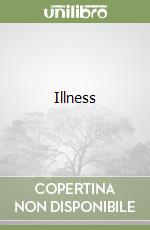 Title :
Illness
Title :
IllnessAuthor: Carel Havi Publisher: Routledge € 42,10
|
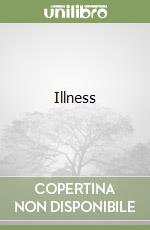 Title :
Illness
Title :
IllnessAuthor: Carel Havi Publisher: Routledge € 157,90
|
|
2016 |
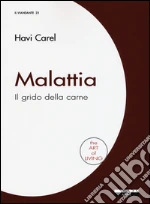 Title :
Malattia. Il grido della carne
Title :
Malattia. Il grido della carneAuthor: Carel Havi Publisher: Ariele Che cos'è la malattia? È una disfunzione fisiologica, un'etichetta sociale, o è un modo di sperimentare il mondo? Come cambia il mondo fisico, sociale ed emotivo di una persona quando si ammala? E ci può essere benessere in una malattia? In questo importante libro che fa riflettere, Havi Carel esamina queste domande e unisce la sua esperienza personale di una grave malattia a riflessioni e osservazioni tratte dal suo lavoro di filosofa. Ella mostra come i concetti e il linguaggio che usiamo di solito per descrivere lo malattia sono inappropriati e fuorvianti. Troppo spesso si vede lo malattia come una disfunzione biologica, mentre si ignora l'esperienza concreta della persona malata, le sue paure, le sue speranze, il suo modo di interagire con gli altri, la sua esperienza di vita vissuta. Il suo approccio scioglie lo tensione tra l'universatilità della malattia e la sua natura intensamente privata, spesso solitaria, e offre un nuovo modo di affrontare un argomento che tocca ognuno di noi. Questa edizione riveduta comprende una nuova introduzione che spiega come le idee filosofiche possono rappresentare per i pazienti e per il personale medico una risorsa per comprendere meglio lo malattia. € 18,00
Scontato: € 17,10
|
|
|
1913 |
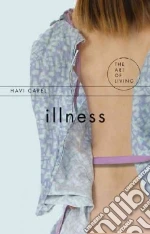 Title :
Illness
Title :
IllnessAuthor: Carel Havi Publisher: Acumen Pub Ltd What is illness? Is it a physiological dysfunction, a social label, or a way of experiencing the world? How do the physical, social and emotional worlds of a person change when they become ill? And can there be well-being within illness? In this remarkable and thought-provoking book, Havi Carel explores these questions by weaving together the personal story of her own serious illness with insights and reflections drawn from her work as a philosopher. Carel's fresh approach to illness raises some uncomfortable questions about how we all - whether healthcare professionals or not - view the ill and challenges us to become more thoughtful. 'Illness' unravels the tension between the universality of illness and its intensely private, often lonely, nature. It offers a new way of looking at a matter that affects every one of us. € 27,50
|
 Title :
Phenomenology and Naturalism
Title :
Phenomenology and NaturalismAuthor: Carel Havi (EDT), Meacham Darian (EDT) Publisher: Cambridge Univ Pr € 39,30
|
|
1912 |
 Title :
Health, Illness and Disease
Title :
Health, Illness and DiseaseAuthor: Carel Havi (EDT), Cooper Rachel (EDT) Publisher: Acumen Pub Ltd What counts as health or ill health? How do we deal with the fallibility of our own bodies? Should illness and disease be considered simply in biological terms, or should considerations of its emotional impact dictate our treatment of it? Our understanding of health and illness had become increasingly more complex in the modern world, as we are able to use medicine not only to fight disease but to control other aspects of our bodies, whether mood, blood pressure, or cholesterol. This collection of essays foregrounds the concepts of health and illness and patient experience within the philosophy of medicine, reflecting on the relationship between the ill person and society. Mental illness is considered alongside physical disease, and the important ramifications of society's differentiation between the two are brought to light. Health, Illness and Disease is a significant contribution to shaping the parameters of the evolving field of philosophy of medicine and will be of interest to medical practitioners and policy-makers as well as philosophers of science and ethicists. € 106,50
|
|
|
2005 |
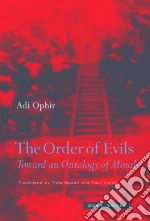 Title :
The Order Of Evils
Title :
The Order Of EvilsAuthor: Ophir Adi, Mazali Rela (TRN), Carel Havi (TRN) Publisher: Zone Books What remains of moral judgment when truth itself is mistrusted, when the validity of every belief system depends on its context, when power and knowledge are inextricably entangled? Is a viable moral theory still possible in the wake of the postmodern criticism of modern philosophy? The Order of Evils responds directly to these questions and dilemmas with one simple and brilliant change of focus. Rather than concentrating on the age-old themes of justice and freedom, Adi Ophir offers a moral theory that emphasizes the existential and political nature of evil. Ophir's main contention is that evil is neither a diabolical element residing in the hearts of men nor a meaningless absence of the good. Rather, it is the socially structured order of 'superfluous evils.' Evils, like pain, suffering, loss, and humiliation, are superfluous when they could have been -- but were not -- prevented. Through close analysis of seminal works by modern and postmodern philosophers -- from Rousseau, Kant, Marx, Sartre, and Arendt to Foucault, Levinas, Derrida, and Lyotard -- Ophir forges a new perspective for thinking about what it means to be a moral being: to be moral, he argues, is to care for others, and to be committed to preventing, at all costs, their suffering and distress.A theoretically sophisticated work, The Order of Evils also bears the traces of Ophir's own political and personal experiences as an Israeli philosopher and activist. Two major events in recent Jewish history have profoundly influenced his thinking: the Holocaust and the prolonged Israeli domination of Palestinians in the Occupied Territories. Ophir does not compare the two events. Instead, he introduces a typology of disasters that allows them to be located within the wide spectrum of humanly generated calamities whose specificity and general patterns emerge clearly and distinctly as what they are and are not. € 41,40
|